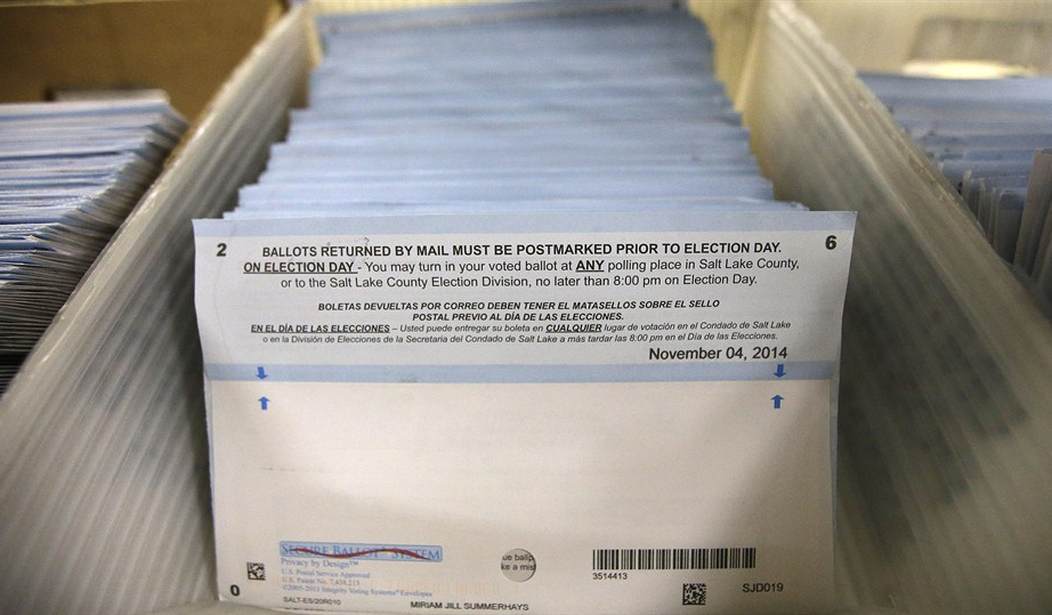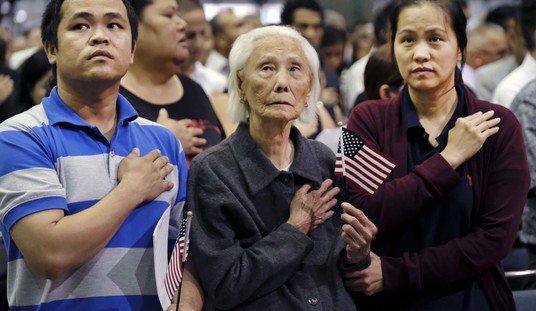This is a new issue that has just arisen today with an Order from the Minnesota Supreme Court.
This past summer Democrat interest groups sued the State of Minnesota over election code provisions that they claimed violated the “right to vote” given problems created by the COVID-19 pandemic. The claims made by the plaintiffs were the same as claims made by Democrat party interest groups in dozens of other lawsuits, but they were made in a Minnesota state court rather than in federal court.
With the entirety of the Minnesota state government being comprised of elected Democrats, the State was quite happy to settle the lawsuit by giving in to every demand made by the Plaintiffs, and entered into a “Consent Decree” — a settlement agreement enforced by a Court Order as to its terms — which altered Minnesota election law in ways contrary to the State’s election statutes.
Minnesota election law has a “Received By” provision for absentee ballots. But this year the Minnesota legislature allowed for “excuse free” absentee balloting, meaning all registered Minnesota voters had the option to vote by mail, and need no excuse for wanting to do so.
The “received by” provision in the statute would invalidate any vote where the ballot was not in the hands of Minnesota election officials by 8:00 pm on election night. The settlement agreement provides that the Secretary of State would not enforce the “Received by” deadline, and would instead accept and count all ballots received by the Elections officials within seven calendar days of the Nov. 3 election date, if the ballot has a postmark showing it was mailed on or before the Nov. 3 election day. The agreement also provided that any ballot lacking a postmark was be presumptively assumed to have been timely mailed unless there was proof by a preponderance of the evidence to the contrary.
There were efforts made to contest this settlement decree in federal court, which I wrote about here. But the Judge in that case — appointed by President Trump — found that the plaintiffs who filed suit lacked standing to challenge the enforcement of the consent decree, and dismissed the case. That decision was appealed to the Eighth Circuit Court of Appeals, and other federal litigation has been filed.
But yesterday the Trump Campaign and other GOP interest groups filed a petition with the Minnesota Supreme Court asking the Court to issue an order that all ballots received after 8:00 pm on November 3, 2020, be segregated from ballots received in compliance with the provisions of the Minnesota statute.
In response, the Minnesota Supreme Court issued an Order directing the petitioners to file a brief explaining why their request for this relief should not be barred by the doctrine of “laches”.
NEW: MN Supreme Court issues order in GOP petition to segregate ballots arriving by mail after Nov. 3.
It requires plaintiffs to address why action not brought sooner and raises prior waiver by Trump/GOP in case involving consent decree.
Brief due Friday by GOP, Mon by SOS pic.twitter.com/4aq4MuyYJ6
— Brian Bakst (@Stowydad) October 29, 2020
“Laches” is an equitable doctrine that says a party should not be allowed to bring a claim for relief if it has unreasonably delayed doing so, and the granting of such relief would work an unfair disadvantage on the opposing party.
The “consent decree” and initial challenges in the Minnesota appeals courts were done in July and August 2020. An appeal to the Minnesota Supreme Court was dismissed in favor of pursuing claims in federal court. The Minnesota Court is asking why it should not find that the Trump campaign and other petitioners have unreasonably delayed in bringing this request after so much time has passed when they could have done so at any point in the past 60+ days.
But what this is really setting up — and it might take until Monday to play out — is that the litigation in the Eighth Circuit challenging the “consent decree” is going to end up before the Supreme Court along with the North Carolina and Pennsylvania cases, both of which have at their core similar changes to the statutory provisions in state election law setting the date and time when all mail-in ballots must be received.
The “single legislature doctrine” — referring to the provision called the “Election Clause” in Article II, Sec. A, Cl. 2 of the Constitution is at issue. Clause 2 reads:
Clause 2. Each State shall appoint, in such Manner as the Legislature thereof may direct, a Number of Electors, equal to the whole Number of Senators and Representatives to which the State may be entitled in the Congress;
In the Pennsylvania case, you have the Pennsylvania Supreme Court rewriting the state election code in ways contrary to the express provisions of the statutes passed by the Pennsylvania legislature — which the Pennsylvania legislature refused to change in the summer of 2020.
In the North Carolina case, you had the State Board of Elections entering into a settlement agreement to end the litigation, making changes to the state election laws which had been passed in the summer of 2020, changing the ballot-receipt deadline after the General Assembly expressly decided to not change the ballot receipt deadline.
In the Minnesota case, you have elected state officials agreeing to settle a lawsuit in a manner that contradicts the written text of the Minnesota election statutes.
Consider again the language used by Justice Alito in his statement yesterday regarding the Pennsylvania case:
The Supreme Court of Pennsylvania has issued a decree that squarely alters an important statutory provision enacted by the Pennsylvania Legislature pursuant to its authority under the Constitution of the United States to make rules governing the conduct of elections for federal office. See Art. I, §4, cl. 1; Art. II, §1, cl. 2; In a law called Act 77, the legislature permitted all voters to cast their ballots by mail but unambiguously required that all mailed ballots be received by 8 p.m. on election day. It also specified that if this provision was declared invalid, much of the rest of Act 77, including its liberalization of mail-in voting, would be void…. In a law enacted in March 2020, the legislature addressed election related issues caused by the pandemic, but it chose not to amend the deadline for the receipt of mailed ballots.
In the face of Act 77’s deadline, the Pennsylvania Supreme Court, by a vote of four to three, decreed that mailed ballots need not be received by election day. Instead, it imposed a different rule: Ballots are to be treated as timely if they are postmarked on or before election day and are received within three days thereafter. In addition, the court ordered that a ballot with no postmark or an illegible postmark must be regarded as timely if it is received by that same date.
It would be highly desirable to issue a ruling on the constitutionality of the State Supreme Court’s decision before the election. That question has national importance, and there is a strong likelihood that the State Supreme Court decision violates the Federal Constitution. The provisions of the Federal Constitution conferring on state legislatures, not state courts, the authority to make rules governing federal elections would be meaningless if a state court could override the rules adopted by the legislature simply by claiming that a state constitutional provision gave the courts the authority to make whatever rules it thought appropriate for the conduct of a fair election. See Art. I, §4,cl. 1; Art. II, §1, cl. 2.
Justice Kavanaugh made similar remarks in Footnote 8 to his statement issued in connection with the Court’s decision to not grant relief in a case from Wisconsin where the Seventh Circuit blocked an ballot receipt deadline extension issued by a federal court:
[U]nder the U. S. Constitution, the state courts do not have a blank check to rewrite state election laws for federal elections. Article II expressly provides that the rules for Presidential elections are established by the States “in such Manner as the Legislature thereof may direct.” §1, cl. 2 (emphasis added). The text of Article II means that “the clearly expressed intent of the legislature must prevail” and that a state court may not depart from the state election code enacted by the legislature…. In a Presidential election, in other words, a state court’s “significant departure from the legislative scheme for appointing Presidential electors presents a federal constitutional question.”.. As Chief Justice Rehnquist explained in Bush v. Gore, the important federal judicial role in reviewing state-court decisions about state law in a federal Presidential election “does not imply a disrespect for state courts but rather a respect for the constitutionally prescribed role of state legislatures. To attach definitive weight to the pronouncement of a state court, when the very question at issue is whether the court has actually departed from the statutory meaning, would be to abdicate our responsibility to enforce the explicit requirements of Article II.”
In his dissent to the Court’s decision to not grant a stay in the North Carolina case, Justice Gorsuch wrote:
The parties before us all acknowledge that under the Federal Constitution only the state “legislature” and “Congress” may prescribe the “Times, Place, and Manner of holding elections.”
While he didn’t directly address the “single legislature doctrine”, and by using “scare quotes” around the word legislature he suggests the word might mean something different appears in the text, he did note favorably the three-judge dissent from the Fourth Circuit decision based primarily on that doctrine, noting that the Election Clause text commits the issue of “election lawmaking” to state and federal legislators.
I do not think it is a coincidence that each of the three has chosen different cases to partially set forth their inclinations. Only Justice Thomas has not yet been heard from but there is no doubt on a textualist basis he would strictly construe the “legislature” term to mean the elected representatives in the state.
That means the needed fifth vote could come from Justice Barrett, another “textualist” in the mold of Justice Scalia.
So there are four state cases — that I know of — where ballot-receipt extensions are at issue in terms of whether the changes made to them violate the US Constitution.
This is going to be “a thing” after Nov 3. For reasons I’ll address in another story, the implications of a “textualist” ruling on the “single legislature doctrine” under the Elections Clause extend far beyond the issues presented by the 2020 election. Let’s just say it makes the control of state legislative bodies even MORE important that might otherwise be the case.
Whether the outcome of these cases will have any actual influence on the outcome of the upcoming election depends entirely on two facts — how many ballots are received during the disputed periods in each state, and what is the outcome of the vote in each of those states without including the disputed ballots. It is entirely possible that the number of late-arriving ballots, in the aggregate, is simply not as big as is being suggested, and that the known vote totals in each state are such that the late-arriving ballots could not change the outcome from a mathematical standpoint.















Join the conversation as a VIP Member